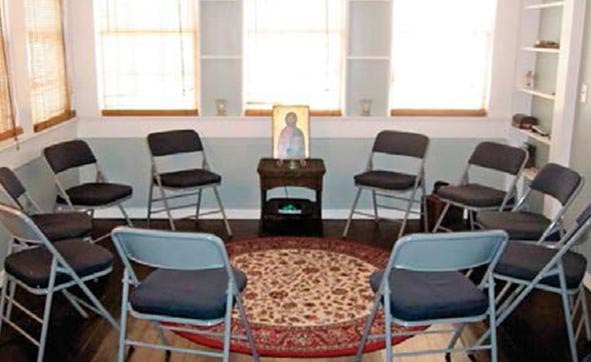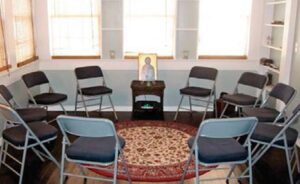Dear Group Leaders and Friends in Christian Meditation,
I’ve always heard that in polite company, we shouldn’t talk about religion or politics. It seems this way of avoiding challenging conversations may have been proper etiquette, but this has set us up to fail. Overall, we have never learned to have conversations with controversial topics. For many of us, there is nothing more controversial than politics and religion. That is ironic since the word that gave us politics is polis, the ancient Greek word for city. And then there is the word religion which is derived from the Latin word relegere which means to gather together. I believe we are to build up community and religion is meant to gather us together.
Now I don’t think that some politicos and religious folks have helped in the divide that led to the notion that we ought not talk politics and religion with others. We have laid the groundwork for the crazy division that exists at present in our world, in our nations, churches, communities and even in our families. In my lifetime, I have never seen such polarization. I suspect that as you read this letter, you have had your own experience of these divisions. Our practice of meditation offers us a unique perspective that the world needs right now. We might even ask ourselves the question that has come forward as we are preparing for this year’s John Main Seminar: What hope does contemplative Christianity offer the world today?
I don’t offer any simplistic answers but maybe that is reason enough to attend the seminar either virtually or in person this July. The question of what role contemplative Christians are to play in our active world is an essential one right now. It is a question that hopefully all of us as members of the World Community for Christian Meditation can wrestle with as members of our diverse and beautiful, yet sadly divided, nation.
The spiritual life that we are called to as Christian meditators draws us actively into the world offering a contemplative response to the challenges of our times. Anglican Priest Father Kenneth Leech offered this wisdom years ago as he reflected on the life and legacy of Julian of Norwich: “Spirituality and the contemplative life can never be a purely personal quest for peace and inner harmony. It is intimately involved with the anguish of the world, for it is rooted in the incarnation and the passion of Christ. Nor can it exalt the “spiritual” above the material life, for it sees (as St. Teresa of Avila put it) ‘that God is among the saucepans …’.” Our spiritual lives flow into the lives we live after we get up from our meditation cushion or chair and the lives we live draw us back to saying our one little word, our mantra maranatha. God is with us as we meditate, God is with us as we live our daily lives and God is with us as we respond to the polarization of our world.
To enter this dialogue with the world calls us to vulnerability. It is easier, yet tragic, to remain in our ideological silos or even the silo of our meditation, but if we are to see God among the saucepans, we are to see God among those with whom we disagree, even those we might think of as the enemy. Remembering that Jesus commanded us to love our enemies and do good to those who hurt us. Loving others involves the risk of vulnerability. In a world that can think of vulnerability as a weakness, as Christians we are to see vulnerability as true strength. Think of the vulnerability that is a part of meditation, to lay aside our thoughts and simply, silently, and in stillness say our mantra.
The theme for this year’s John Main Seminar https://www.johnmainseminar.org/ is going to be an opportunity to have conversations in the Spirit. We believe that God is always in our midst, showing us the way to God’s peaceable kingdom. In this Seminar week, under the guidance of Archbishop Jason Gordon and Father Laurence Freeman, we will have contemplative conversations that model a way of listening that will help us grow as people in a world that so desperately needs contemplative wisdom … a contemplative wisdom that flows from silence and the love of God that gathers us together. Maybe then we won’t fear discussing religion and politics.
Warmly,
Kevin Maksym




